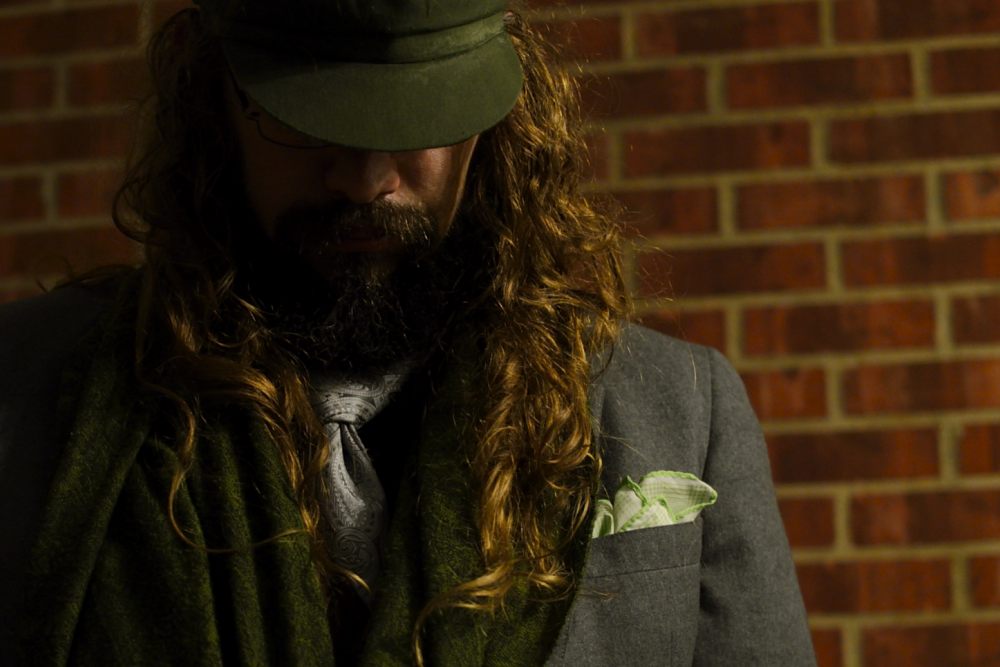
Preparation
Costumes – wear as much black as possible
Altar – altar table, bones, black candles, saturn plaque, seasonal swag, sickle, salt, punch bowl for libations, pomegranate, incense, altar cloth
Opening
Cleanse space with banishing pentagrams in the four directions (Cross & Pentagram rite if feeling ambitions)
Cast the circle with HSA ritual knife and salt water thrown to the quarters.
Quarter-Calls
Keeper of Air – “O Air, breath and thought! O Powers of Air, bright and cold! I ask you, come to my circle as friend, guardian, and witness!”
Keeper of Fire – “O Fire, primal light of creation! O Powers of Fire, keepers of the light! I ask you, come to my circle as friend, guardian, and witness!”
Keeper of Water – “O Water, dark keeper of mystery! O Powers of Water, silent guides! I ask you, come to my circle as friend, guardian, and witness!”
Keeper of Earth – “O Earth, sustainer of life and flesh! O Powers of Earth, guardians and mothers! I ask you, come to my circle as friend, guardian, and witness!”
Goddes-touched – “The Circle is cast! We call upon you, Mother of All Witches, be here with us! Let your wisdom and your power fill this place! Bear witness! Accept our offerings and libations. We call upon you for your power, your presence, and your protection.”
God-touched – “We call upon you, Father of all Witches, be here with us! Let your wisdom and your power fill this place! Bear witness! Accept our offerings and libations. We call upon you for your power, your presence, and your protection.”
Invocation of Saturninan Powers for Opening of the West Gate
God-toched – “O you powers of Saturn, powers of perfection and decrease, we call upon you to open the Gates in the West.”
Goddess-touched – “We call upon you in the name of the Witchmother, the Crone.”
God-touched – “We call upon you in the name of the Witchfather, the Horned One.”
Goddess-toched – “We call upon you by these signs and seals: let our ancestors come forth, those mighty dead whence we spring, and accept our libations. These festivities are held in their honor. Let them be present with us tonight.”
God-touched – “We call upon you to hold fast these walls, that the dead not wander and become lost.”
Goddess-touched – “O you powers of Saturn, powers of perfection and decrease, we call upon you to open the Gates in the West.”
God-touched (call and responce):
ΑΩΘ ΑΒΡΑΩΘ ΒΑΣΥΜ ΙΣΑΚ ΣΑΒΑΩΘ ΙΑΩ
AOT ABRAOT BASUM ISAK SABAOT IAO
Party With Ghosts
The dead are formally invited to join the party and stay for the duration
God-touched – “Come forth, O ye mighty dead, our ancestors and our progenetors!”
Come forth, O Margot Adler
…. [declaim list]
These festivities are held in your honor. Be present with us tonight and accept these offerings.
Closing
God-touched – “Oh you Powers of Saturn, as you have brought the dead to us, by these mighty names and signs and seals, lead them back beyond the West. As you have opened the Gates of the West, seal them again now, that nothing may pass through uninvited.”
Goddess-touched – “Witchmother, Witchfather, you who draw us to and guide us upon the path. We thank you for your presence, your power, your guidance, and your protection.”
Release Quarters
Keeper of Earth – “Thank you, O Powers of Earth, for bearing witness to our rite. We release you.”
Keeper of Water – “Thank you, O Powers of Water, for bearing witness to our rite. We release you.”
Keeper of Fire – “Thank you, O Powers of Fire, for bearing witness to our rite. We release you.”
Keeper of Air – “Thank you, O Powers of Air, for bearing witness to our rite. We release you.”












